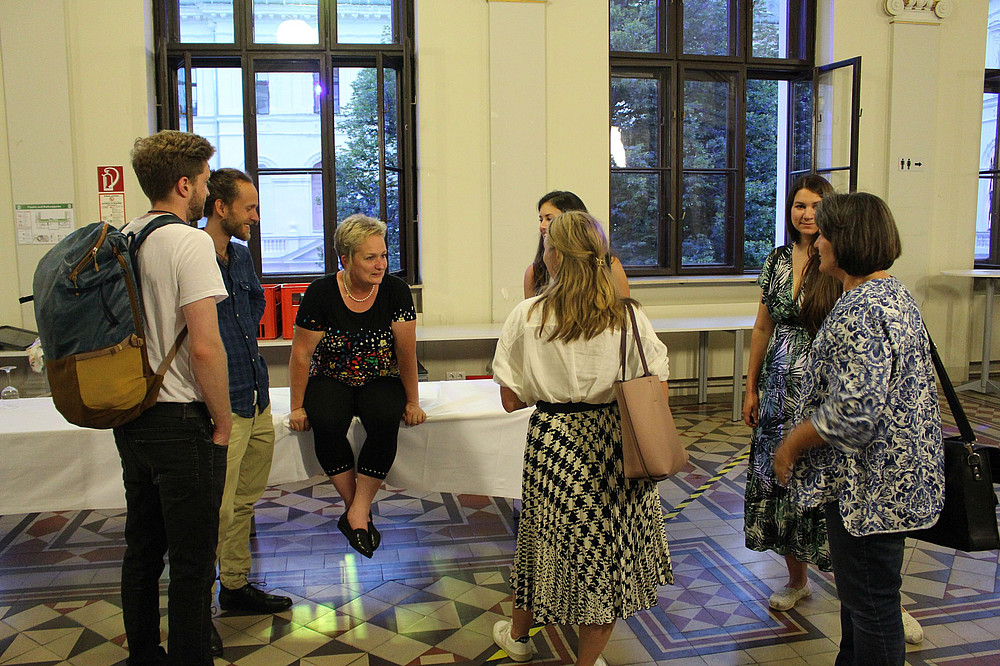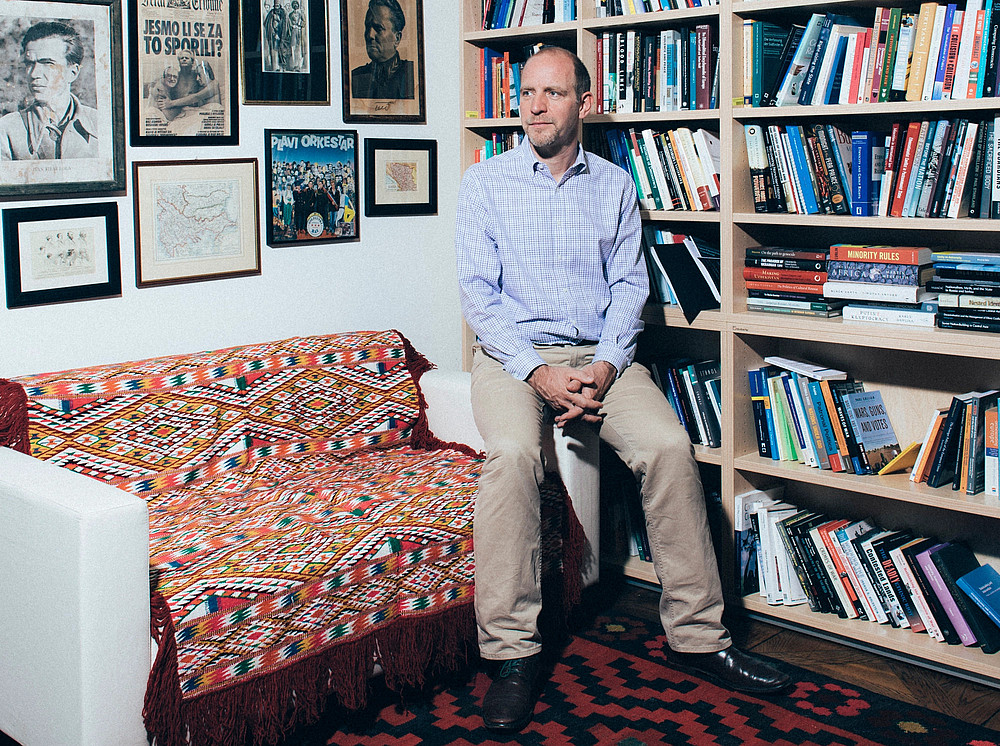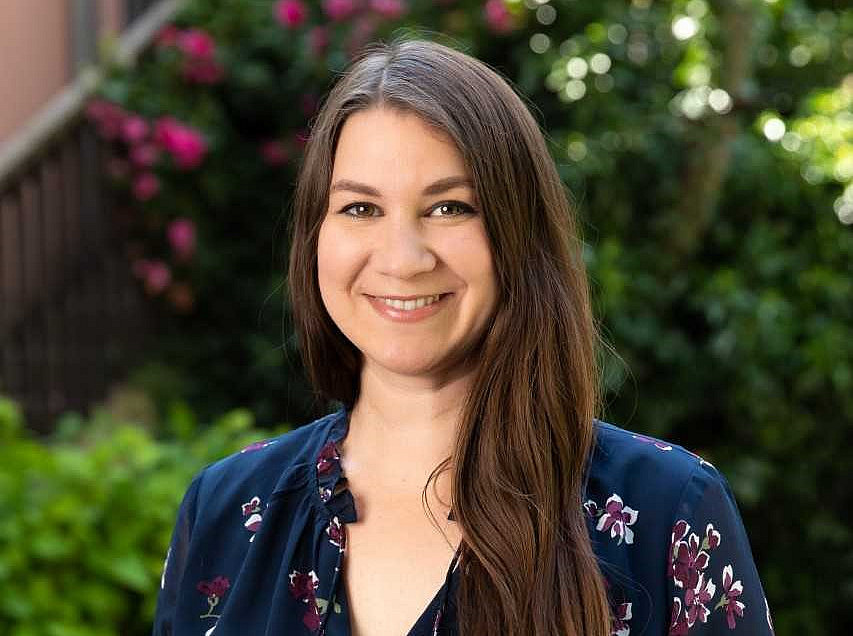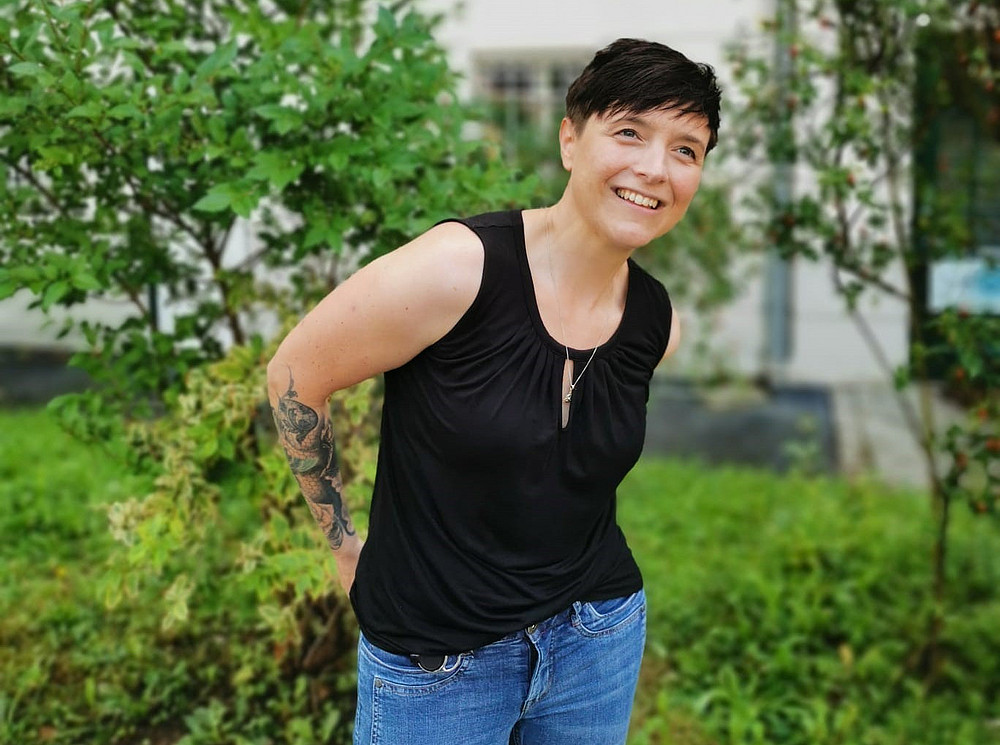
How did Global Studies come into being?
The idea for Global Studies came from Professor emeritus Gerald Schöpfer and his fellows. In 2010, they had the idea to bundle the competences of the University of Graz in the fields of globalization and development and to launch a new master program which was enthusiastically accepted by the students. Academics at the University of Graz were divided about Global Studies: While some were very positive and supportive of the program, others were very skeptical and even dismissive of an interdisciplinary program in which academic breadth took precedence over subject expertise.
In a very critical phase in 2016, when the skeptics prevailed and the university was on the verge of closing the master's program, a group of motivated colleagues from the curriculum committee and I were given the responsibility for the program. Through massive restructuring and division into three curricula, we succeeded in firmly establishing Global Studies at the university. I am very grateful for this and always refer to Global Studies as my favorite adopted child.
What is special about Global Studies?
Global Studies are an interdisciplinary and transdisciplinary program: They bridge boundaries that are often set by disciplinary studies and strive to extend into everyday reality. Global Studies co-operate with partner organizations from business and civil society. Many of these organizations work at the local and regional levels to address major global challenges: Mitigating the global exploitation of both people and resources, reducing poverty, fostering migration or integration as well as inclusion and equality, addressing climate change, mobility, and energy transition, and many more.
What are the strengths and weaknesses of Global Studies?
Actually, my basic academic field of expertise is waste management, especially recycling and reuse. Figuratively speaking, this expertise supports me greatly in organizing Global Studies. The program hardly offers any courses of its own, except for the basic modules A and B and the Interdisciplinary Practical Training. We, however, assign more than 500 courses from the entire university's offerings to our curricula every year (and thus "recycle" them ????). This makes the program very complex for both the administration and the students, since we cannot offer timetables, prefabricated sequences or even ECTS that complement each other at least basically to the required extent. On the other hand, this is exactly what drives the diversity and the degrees of freedom possible in Global Studies. If any organizational or bureaucratic problems occur we try to solve with flexibility and improvisation, and we always find good solutions for our students.
Florian Bieber
Professor of History and Politics of Southeast Europe and Director of the Center for Southeast European Studies
As part of the Global Studies Master's program, you teach the International Relations lecture in English. Why is it that "International Relations" is hardly perceived or dealt with as a political field in the German-speaking world?
International relations is a subfield of political science and as such has quite some visibility. Austria still suffers from the fact that political science as a whole is less firmly anchored. Even though we have a good range of political science courses in Graz, in Austria you can only study it in Vienna, Salzburg and Innsbruck. In Germany, one can study political science at ninety universities. In the English-speaking context, International Relations is even more visible within Political Science. However, the war in Ukraine has made experts from International Relations more visible. Unfortunately, some colleagues have presented a rather uninformed picture, from John Mearsheimer to Johannes Varwick. It is a testament to the fact that international relations looks at the world on a macro level, but it also needs regional expertise to properly understand the context.

Is Russia's current invasion of Ukraine changing the perception of war and peace?
The last decades have been more characterized by civil wars, i.e. wars within states, even if many external actors were involved. The war in Syria is a good example of this, which was internal but in which Iran, the U.S., Russia, Hizbullah, Israel, Turkey and other powers intervened in the course. A classic war of aggression, such as Russia is currently waging against Ukraine, is a rarity. For many in Europe, this has meant that war is something distant that does not directly threaten you. The Russian war of aggression is not the first war in Europe since 1989. Since the end of the Cold War, there have been more years of war in Europe than years of peace, but these tend to be overlooked in the EU. The war in Ukraine is for many in Europe the first very visible and also threatening war.
In your opinion, what is the key to global peace? What factors favor a peaceful development of mankind and make war unlikely?
Global peace will only ever be a goal; as a reality, it is rather unlikely. The more the countries of the world can agree on rules of engagement and the higher the costs of war, the more the risk can be reduced. This requires a strengthening of a multi-lateral world order based on rules. A confrontation between the West and China, for example, would tend to fuel conflict and push common rules into the background. We should not forget that regardless of Russia's war of aggression, most wars, and thus most casualties, continue to be fought within states. The possibilities of intervention and conflict resolution, are central here. Wars of aggression like Russia's will in all likelihood be the exception.
Lisa Weichsler
Graduate and lecturer of Global Studies, project leader of the project ComUnitySpirit at the Afro-Asian Institute Graz

What advice would you give to Global Studies students?
I would best network with other Global Studies students already at the introductory lecture and make an effort to stay in contact. For learning, exchanging transcripts, and having a nice student life in Graz, I was very grateful for acquaintances/friendships, some of which still exist today. Additionally, when choosing an internship, I would consciously look for something that would be applicable to future career choices. Like many other students, I stayed with the company as an employee after the internship.
What was your best experience during your studies?
I have particularly fond memories of my mandatory internship at Südwind Steiermark. The internship was important for me to find out where my interests and strengths lie and confirmed that Global Studies was the right choice of study for me.
What are you doing at the moment?
I work at the Afro-Asian Institute Graz in the project ComUnitySpirit - Religions and Cultures in Dialogue. As project leader, I get to coordinate the Interreligious Advisory Board of the City of Graz and I am a member of the Human Rights Advisory Board of the City of Graz. In addition to committee work, I am particularly happy to help shape intercultural and interreligious offerings, such as events, in Graz.
What do you actually do in the coordination office?
My tasks are very diverse in nature and wide-ranging. Together with my colleague, I plan teaching for the Institute of Environmental Systems Science and Global Studies. Support our lecturers in teaching and in the handling of exams. Another focus is the administrative support of our students. I attach great importance to good advising so that our students are in good hands.
Furthermore, I support the curricula commissions for USW and GS. Besides the "normal" day-to-day business, I also maintain the websites of Global Studies and Environmental Systems Science.
What do you like most about your work?
The close and good cooperation with my colleagues at the institute. Although we have grown a lot in recent years, we can proudly say that we have a great working environment and nice colleagues. I also love new challenges and approach new tasks with a zest for action. The work at the institute and in the coordination office is very varied, which I really like. It never gets boring!

What is the funniest thing you have experienced so far?
There are many funny moments in the coordination office, which I will not tell you here ;)